-
BackX
-
Components
-
-
Category
-
Semiconductors
- Diodes
- Thyristors
-
Electro-insulated Modules
- Electro-insulated Modules | VISHAY (IR)
- Electro-insulated Modules | INFINEON (EUPEC)
- Electro-insulated Modules | Semikron
- Electro-insulated Modules | POWEREX
- Electro-insulated Modules | IXYS
- Electro-insulated Modules | POSEICO
- Electro-insulated Modules | ABB
- Electro-insulated Modules | TECHSEM
- Go to the subcategory
- Bridge Rectifiers
-
Transistors
- Transistors | GeneSiC
- SiC MOSFET Modules | Mitsubishi
- SiC MOSFET Modules | STARPOWER
- Module SiC MOSFET ABB’s
- IGBT Modules | MITSUBISHI
- Transistor Modules | MITSUBISHI
- MOSFET Modules | MITSUBISHI
- Transistor Modules | ABB
- IGBT Modules | POWEREX
- IGBT Modules | INFINEON (EUPEC)
- Silicon Carbide (SiC) semiconductor elements
- Go to the subcategory
- Gate Drivers
- Power Blocks
- Go to the subcategory
- Electrical Transducers
-
Passive components (capacitors, resistors, fuses, filters)
- Resistors
-
Fuses
- Miniature Fuses for electronic circuits - ABC & AGC Series
- Tubular Fast-acting Fuses
- Time-delay Fuse Links with GL/GG & AM characteristics
- Ultrafast Fuse Links
- Fast-acting Fuses (British & American standard)
- Fast-acting Fuses (European standard)
- Traction Fuses
- High-voltage Fuse Links
- Go to the subcategory
- Capacitors
- EMI Filters
- Supercapacitors
- Power surge protection
- TEMPEST emission revealing filters
- Surge arrester
- Go to the subcategory
-
Relays and Contactors
- Relays and Contactors - Theory
- 3-Phase AC Semiconductor Relays
- DC Semiconductor Relays
- Controllers, Control Systems and Accessories
- Soft Starters and Reversible Relays
- Electromechanical Relays
- Contactors
- Rotary Switches
-
Single-Phase AC Semiconductor Relays
- AC ONE PHASE RELAYS 1 series| D2425 | D2450
- One phase semiconductor AC relays CWA and CWD series
- One phase semiconductor AC relays CMRA and CMRD series
- One phase semiconductor AC relays - PS series
- Double and quadruple semiconductor AC relays - D24 D, TD24 Q, H12D48 D series
- One phase semiconductor relays - gn series
- Ckr series single phase solid state relays
- One phase AC semiconductor relays for DIN bus - ERDA I ERAA series
- 150A AC single phase relays
- Rail Mountable Solid State Relays With Integrated Heat Sink - ENDA, ERDA1 / ERAA1 series
- Go to the subcategory
- Single-Phase AC Semiconductor Relays for PCBs
- Interface Relays
- Go to the subcategory
- Cores and Other Inductive Components
- Heatsinks, Varistors, Thermal Protection
- Fans
- Air Conditioning, Accessories for Electrical Cabinets, Coolers
-
Batteries, Chargers, Buffer Power Supplies and Inverters
- Batteries, Chargers - Theoretical Description
- Modular Li-ion Battery Building Blocks, Custom Batteries, BMS
- Batteries
- Battery Chargers and Accessories
- Uninterruptible Power Supply and Buffer Power Supplies
- Inverters and Photovoltaic Equipments
- Energy storage
- Fuel cells
- Lithium-ion batteries
- Go to the subcategory
-
Automatics
- Spiralift Lifts
- Futaba Drone Parts
- Limit Switches, Microswitches
- Sensors, Transducers
-
Infrared Thermometers (Pyrometers)
- IR-TE Series - Water-proof Palm-sized Radiation Thermometer
- IR-TA Series - Handheld Type Radiation Thermometer
- IR-H Series - Handheld Type Radiation Thermometer
- IR-BA Series - High-speed Compact Radiation Thermometer
- IR-FA Series - Fiber Optic Radiation Thermometer
- IR-BZ Series - Compact Infrared Thermometers
- Go to the subcategory
- Counters, Time Relays, Panel Meters
- Industrial Protection Devices
- Light and Sound Signalling
- Thermographic Camera
- LED Displays
- Control Equipments
- Go to the subcategory
-
Cables, Litz wires, Conduits, Flexible connections
- Wires
- Cable feedthroughs and couplers
- Litz wires
- Cables for extreme applications
- Sleevings
-
Braids
- Flat Braids
- Round Braids
- Very Flexible Flat Braids
- Very Flexible Round Braids
- Cylindrical Cooper Braids
- Cylindrical Cooper Braids and Sleevings
- Flexible Earthing Connections
- Galvanized and Stainless Steel Cylindrical Braids
- PCV Insulated Copper Braids (temp. up to 85C)
- Flat Aluminium Braids
- Junction Set - Braids and Tubes
- Go to the subcategory
- Traction Equipment
- Cable Terminals
- Flexible Insulated Busbars
- Flexible Multilayer Busbars
- Cable Duct Systems
- Go to the subcategory
- View all categories
-
Semiconductors
-
-
- Suppliers
-
Applications
- CNC Machine Tools
- DC and AC Drives (Inverters)
- Energetics
- Energy bank
- Equipment and Components for Hazardous Areas [Ex]
- Equipment for Distribution, Control and Telecommunications Cabinets
- HVAC Automation
- Induction Heating
- Industrial Automation
- Industrial Protective Devices
- Machines for Drying and Wood Processing
- Machines for Thermoforming Plastics
- Mining, Metallurgy and Foundry
- Motors and Transformers
- Power Supplies (UPS) and Rectifier Systems
- Printing
- Temperature Measurement and Regulation
- Test and Laboratory Measurements
- Tram and Railway Traction
- Welding Machines
-
Assembly
-
-
Inductors
-
-
Induction devices
-
-
Service
-
- Contact
- Zobacz wszystkie kategorie
Top 5 Applications of Anaerobic Adhesives in Industry

Anaerobic adhesives represent one of the most advanced solutions in the field of bonding and sealing components in industry. Thanks to their unique technology, these adhesives are distinguished by their ability to polymerize in anaerobic conditions, making them indispensable for many critical applications. Based on modern chemical formulas, anaerobic adhesives offer exceptional durability, resistance to extreme conditions, and the ability to seal connections with complex shapes.
How do anaerobic adhesives work?
The mechanism of anaerobic adhesives is based on a chemical reaction initiated in an oxygen-free environment. When the adhesive is applied to a thread surface and oxygen access is cut off by tightening the components, the polymerization process begins. Catalytic curing starts upon contact with metals due to the presence of active ions on their surface. This reaction leads to the formation of a durable, homogeneous bond that exhibits high mechanical and chemical resistance.
Key properties and the polymerization mechanism
Anaerobic adhesives are characterized by several essential properties that determine their widespread use in the industry. First and foremost, they offer shear and tensile strength, making them ideal for securing screws, threads, and other mechanical connections. The polymerization process results in a durable polymer network resistant to temperature, pressure, and chemical agents.
Thanks to anaerobic curing technology, anaerobic adhesives are perfect for applications requiring resistance to vibrations and dynamic loads. Their ability to fill micro-damages and eliminate leaks allows for the creation of durable seals in critical connections such as hydraulic systems or gas installations. The mechanism of action and versatility of these adhesives make them a key tool in industries like automotive, aerospace, energy, and machinery.
1. Applications in automotive and transportation
Anaerobic adhesives find widespread use in automotive and transportation, where the durability and reliability of connections are crucial for vehicle safety and efficiency. Thanks to their ability to create strong and durable seals, these adhesives become an indispensable solution in many structural elements.
Securing threaded connections in engines
One of the most critical applications of anaerobic adhesives in automotive is securing threaded connections in engines. High temperatures, pressure, and dynamic loads in powertrain systems require measures to prevent leaks and loosening of components. These adhesives, through the anaerobic polymerization mechanism, form durable connections resistant to extreme conditions.
Anaerobic adhesives effectively protect threads from corrosion and allow for an even distribution of forces in connections. In combustion engines, they are used to seal cylinder head bolts, oil drain plugs, or connections in exhaust systems. Their properties enhance the reliability and longevity of mechanical components.
Reducing vibrations and preventing bolt loosening
A dynamic environment, such as vehicle movement, generates vibrations that can lead to loosening of bolts and fastening elements. Anaerobic adhesives act as additional protection, eliminating this issue by creating stable and durable connections. They are particularly useful in suspension components, braking systems, or bodywork fastenings.
With their ability to absorb vibrations and resistance to varying working conditions, anaerobic adhesives contribute to increased vehicle user comfort and reduced maintenance costs. This reliable solution minimizes the risk of failures and enhances the overall durability of automotive and transportation structures.
2. Energy and heavy industry
Anaerobic adhesives play a key role in energy and heavy industry, where the durability and tightness of connections are of utmost importance. Products from BÄDER GMBH & CO. KG offer reliable solutions in demanding environments characterized by high pressure, extreme temperatures, and significant mechanical loads.
Sealing high-pressure installations
In the energy sector, installations operating under high pressure, such as gas and water pipelines, require exceptionally durable seals. Anaerobic adhesives are ideal for such applications, as they create hermetic connections that prevent leaks and ensure long-term reliability. Thread sealants, such as B243 Eco, are resistant to temperature fluctuations and aggressive chemical substances, making them widely used in power plants and petrochemical facilities.
The application of these adhesives is not limited to sealing pipelines. They are also used to secure bolts in pressure components, increasing structural stability and eliminating the risk of leaks due to vibrations or load changes.
Anaerobic adhesives in turbines and power plants
Turbines used in power plants, whether coal, gas, or hydro, are devices where any failure can lead to significant losses. Thread adhesives, such as B270 Eco, are used to secure connections in turbine components, including blades, shafts, and housings. With properties like high temperature resistance and excellent sealing, these products help minimize the risk of failure caused by loosening components.
In renewable energy, such as wind turbines, anaerobic adhesives are used to secure threaded connections in towers and nacelles. They also offer corrosion protection, which is essential for installations exposed to atmospheric factors.
Thread sealants and bolt locks, such as B222 Eco, contribute to extending the lifespan of critical components in heavy industry, translating to cost savings in maintenance and repairs. Thanks to the advanced anaerobic polymerization mechanism, these industrial adhesives are the foundation of durability and reliability in the most demanding applications.
3. Medical and pharmaceutical industry
Anaerobic adhesives have found wide applications in the medical and pharmaceutical industry, providing reliable solutions in medical devices and laboratory equipment. With exceptional bonding properties, resistance to high temperatures and chemicals, as well as precise application to thread areas, these products become invaluable tools in the production and maintenance of equipment used in medicine.
Applications in medical devices
Anaerobic adhesives are used in the production of various medical devices, such as implants, imaging diagnostic equipment, and monitoring devices. Thanks to the properties of products like BÄDER GMBH & CO. KG B222 Eco and B243 Eco, these adhesives are utilized for durable and safe bonding of components in medical devices that must meet strict safety and hygiene standards. These products effectively secure elements in infusion devices, analyzers, and other precision equipment where the tightness and reliability of connections are critical. These adhesives also exhibit high resistance to sterilization environments, making them suitable for applications requiring rigorous cleanliness.
Biocompatible adhesives in laboratory equipment
In the pharmaceutical and medical industries, special attention is paid to the biocompatibility of materials used in devices that come into contact with the human body. Anaerobic adhesives used in medical devices are specifically designed to meet biocompatibility standards, meaning they do not cause allergic reactions or other adverse health effects. The use of biocompatible thread adhesives in laboratory equipment, such as chemical analysis apparatus or diagnostic devices, ensures their long-term functionality and high precision.
Anaerobic adhesives used in these industries must provide not only strong bonds but also resistance to aggressive chemicals, high temperatures, and sterilization. Due to their durability, resistance to vibrations, and chemical stability, adhesives like B270 Eco from BÄDER GMBH & CO. KG become essential in the production and maintenance of medical equipment, ensuring reliability and safety for patients and medical staff.
With modern solutions, anaerobic adhesives offer invaluable support in medicine and pharmacy, delivering robustness, safety, and precision required in these demanding industries.
4. Industrial machinery manufacturing
Anaerobic adhesives find widespread application in the manufacturing of industrial machinery, where the demands for reliable connections and resistance to extreme working conditions are particularly high. Thanks to their unique properties, these adhesives are a key element in ensuring the durability and efficiency of machines, both in production and operation.
Durable securing of connections in high-performance machines
In industrial machinery, especially in high-performance ones, threaded connections must be particularly robust. Anaerobic adhesives, such as BÄDER GMBH & CO. KG B222 Eco, B243 Eco, or B270 Eco, are excellent solutions for securing threaded connections exposed to intense mechanical loads, vibrations, and aggressive substances. Their use enables connections that are not only vibration-resistant but also resistant to overloads and high breaking moments, allowing machines to operate more reliably for longer periods.
Anaerobic adhesives used in industrial machinery manufacturing are also characterized by ease of application, simplifying the assembly process and improving production efficiency. Using these agents in threaded connections reduces the risk of loosening screws and other components, which is especially important in high-speed machines such as presses, mills, or metalworking equipment.
Resistance to extreme working conditions
Industrial machinery often operates under extreme conditions, including high temperatures, significant mechanical loads, and exposure to chemicals. Anaerobic adhesives, like those offered by DACPOL, provide excellent resistance to extreme temperature, chemical, and mechanical conditions, making them an ideal solution for such environments. These adhesives, thanks to their anaerobic polymerization mechanism, create bonds resistant to high temperatures (up to 150°C in some products) and aggressive chemicals.
Due to this resistance to extreme working conditions, anaerobic adhesives are frequently used in industries such as plastics processing machinery manufacturing, metallurgy, and energy. Threaded connections secured with these adhesives provide stability and long-lasting machine durability, translating to lower operating costs and reduced risk of failures associated with loose screws or leaky connections.
All these properties make anaerobic adhesives an indispensable element in industrial machinery manufacturing, increasing their reliability, durability, and work efficiency in challenging conditions.
5. Chemical and petrochemical industries
Anaerobic adhesives play a crucial role in the chemical and petrochemical industries, where their sealing properties and resistance to aggressive chemical environments are invaluable. Thanks to their ability to polymerize in anaerobic conditions, these adhesives create exceptionally durable bonds capable of withstanding extreme conditions faced by equipment in these sectors.
Seals resistant to aggressive chemical environments
In the chemical and petrochemical industries, substances such as acids, bases, solvents, and oils can easily damage traditional sealing materials. In such conditions, anaerobic adhesives, like B222 Eco, B243 Eco, or B270 Eco, are an excellent solution. They are highly resistant to chemicals, making them ideal for sealing threaded connections in installations transporting aggressive media. This prevents leaks and ensures the safe operation of equipment, which is particularly important in refineries, chemical factories, and petrochemical plants.
Anaerobic adhesives effectively prevent loosening of threaded connections even in the most demanding conditions, where strong vibrations, high temperatures, and contact with chemicals could lead to connection failures. Their resistance to chemicals allows them to be used in areas exposed to substances such as acids, bases, petroleum, industrial gases, or cleaning agents. This ensures long-term reliability and safety.
Applications in media transport systems
In the petrochemical industry, anaerobic adhesives are used in media transport systems such as pipelines, tanks, and various types of transport installations. In these systems, ensuring tightness and resistance to leaks, which could lead to serious failures or environmental contamination, is crucial. Anaerobic adhesives are an ideal solution for such applications because they create durable, pressure-resistant connections that prevent leaks.
Their application enables the sealing of threaded connections in pipelines and other installation elements that must transport aggressive chemicals under high pressure. High resistance to elevated temperatures, chemicals, and vibrations makes anaerobic adhesives indispensable in maintaining the efficiency of these systems, which is of great importance in ensuring continuity of production and safety in the petrochemical industry.
Thanks to these properties, anaerobic adhesives provide a reliable solution in the challenging conditions of the chemical and petrochemical industries, where resistance to aggressive environments and reliability are absolutely critical.
Summary
Anaerobic adhesives are a unique solution across various industries, offering numerous benefits that translate into reliability, safety, and efficiency in production processes. Their primary advantage is the ability to create durable bonds in anaerobic conditions, allowing their use in a range of applications where traditional sealing methods may not suffice. With resistance to vibrations, high temperatures, pressure, and aggressive chemical environments, anaerobic adhesives are indispensable in industries such as automotive, energy, chemical, medical, and machinery.
In the automotive and transportation industries, these adhesives not only secure threaded connections but also reduce vibrations, preventing screws and connections from loosening. In energy and heavy industries, anaerobic adhesives are ideal for sealing high-pressure installations, protecting against leaks under challenging working conditions. In the chemical and petrochemical sectors, their resistance to aggressive substances allows for long-term protection of transport systems. Similarly, in medicine and pharmaceuticals, anaerobic adhesives are used in the production of medical equipment, where the biocompatibility of materials is essential.
How to choose the right adhesive for a specific application?
The selection of the appropriate anaerobic adhesive depends on several key factors, such as the type of application, working conditions, and requirements for material durability and resistance. For connections in the automotive or energy industries, where exposure to vibrations, high temperatures, and chemicals is significant, high-strength adhesives such as B222 Eco or B243 Eco are recommended, offering excellent resistance to these factors. For more demanding applications where pressure plays a critical role, adhesives like BÄDER GMBH & CO. KG B270 Eco ensure proper tightness and resistance to aggressive media.
When selecting an adhesive, it is also important to consider specific technical requirements such as curing time, operating temperature, and the type of material the adhesive will interact with. It is also crucial to account for the potential need for disassembly – for temporary connections, adhesives that allow easier disassembly can be chosen, while for applications requiring long-lasting durability, adhesives with very high mechanical strength are the best choice.
The key to success in selecting the right anaerobic adhesive lies in thoroughly identifying the working conditions and tailoring the products to the specific needs of the application, enabling optimal results in every industrial sector.
Related products
Related posts
 Thermally conductive materials in power storages
Thermally conductive materials in power storages
 Measuring power and energy in electric circuits
Measuring power and energy in electric circuits
 Wentylatory przemysłowe - rodzaje, właściwości
Wentylatory przemysłowe - rodzaje, właściwości





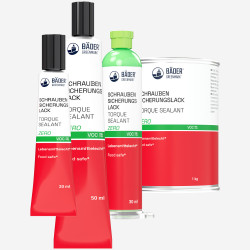
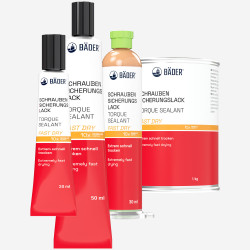
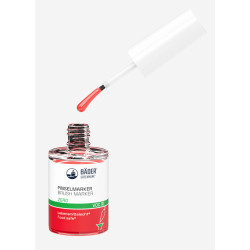
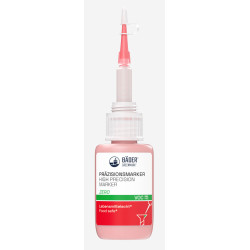
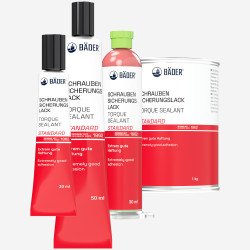

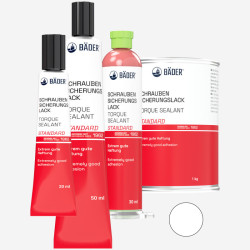
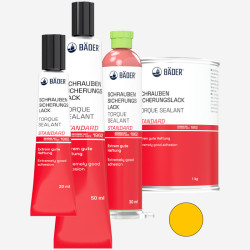
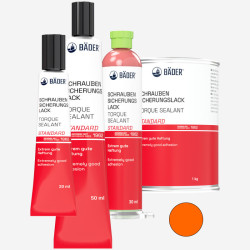
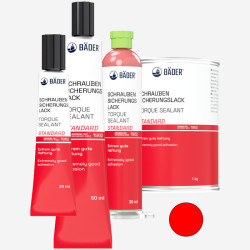
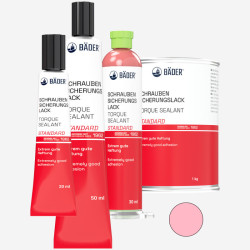
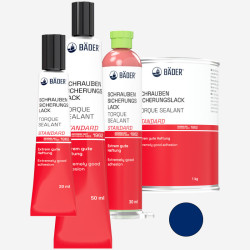
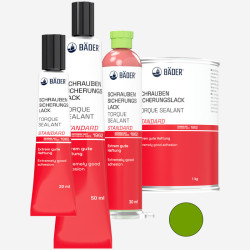
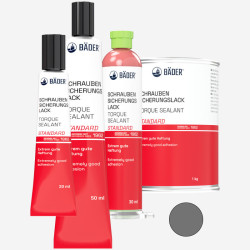
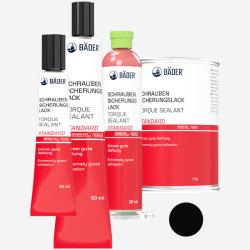
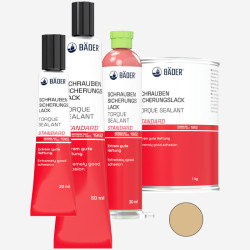
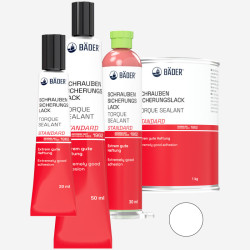
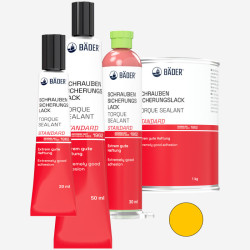
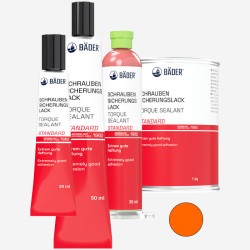
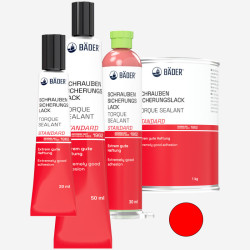
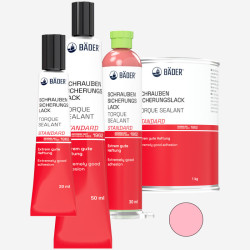
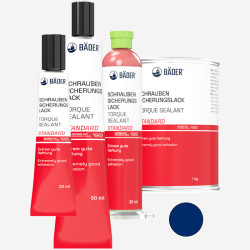
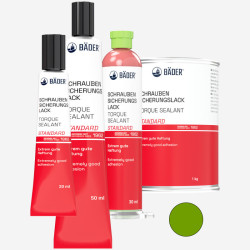
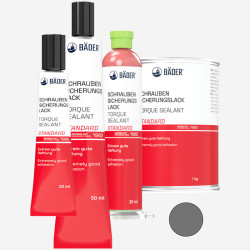

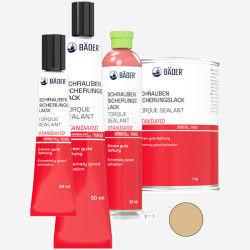
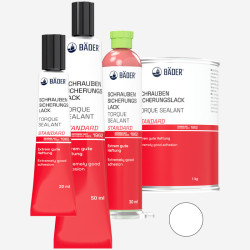
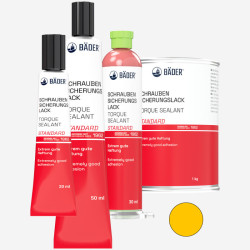
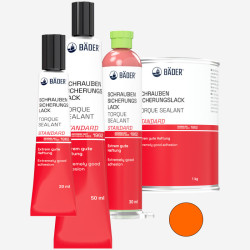
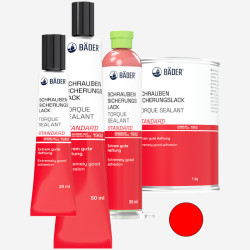
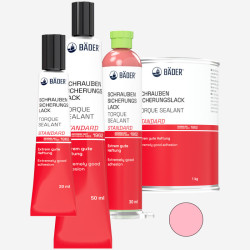
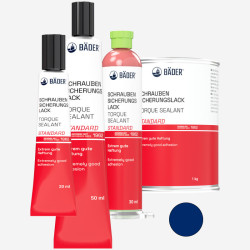
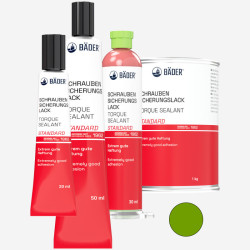
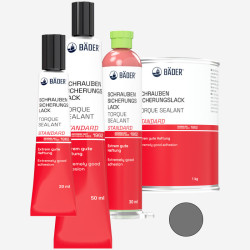
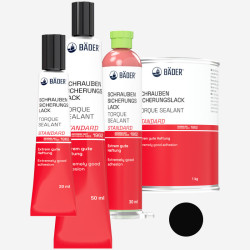
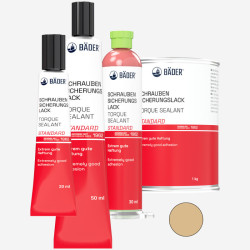
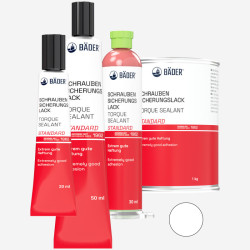
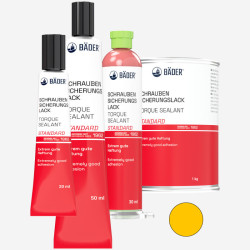
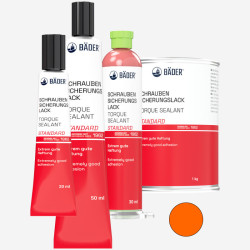
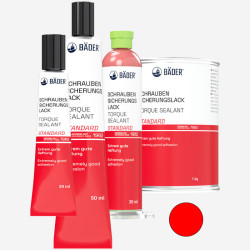
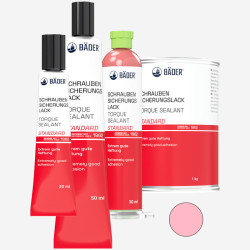
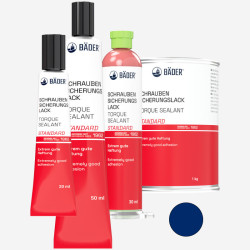
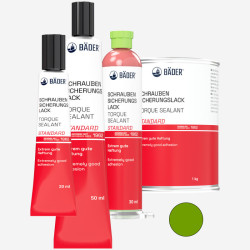

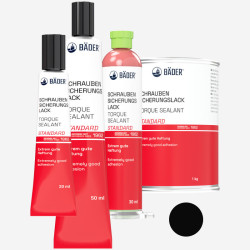
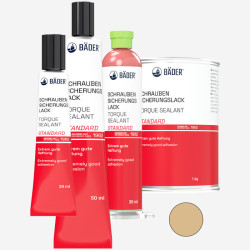
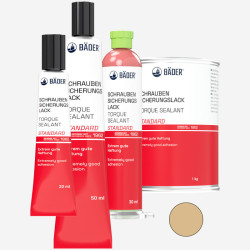

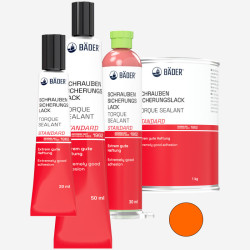
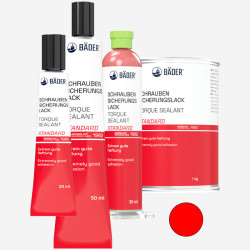

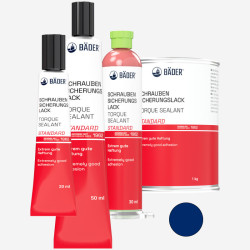

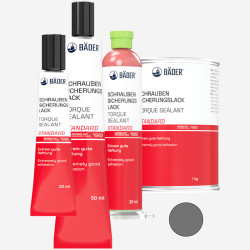
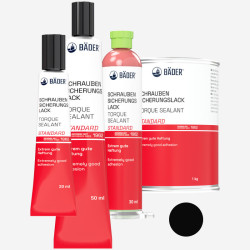
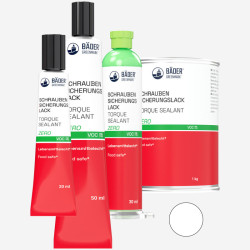
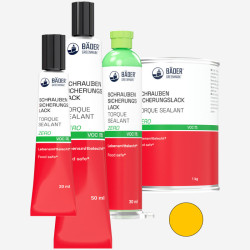
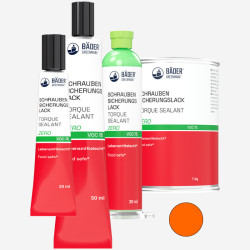
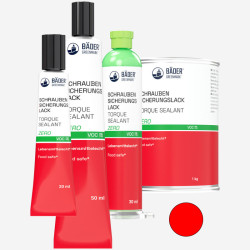

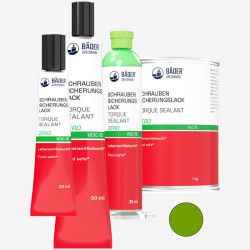
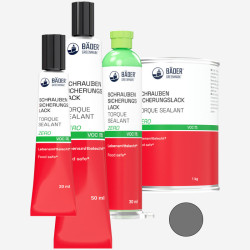
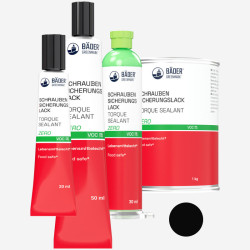
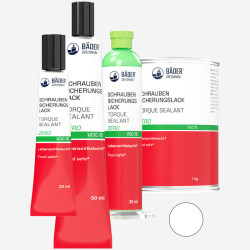
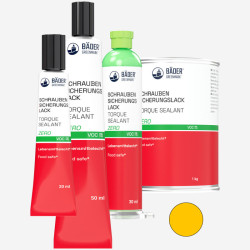
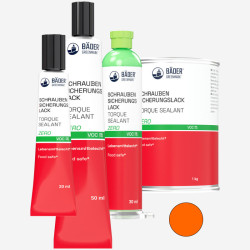
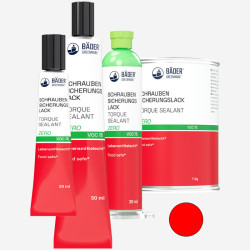

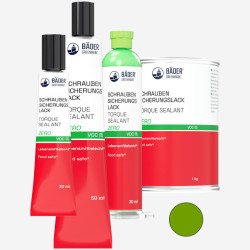
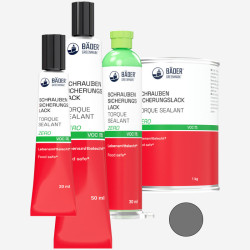
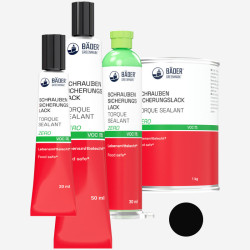
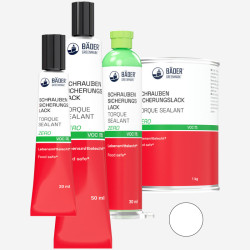
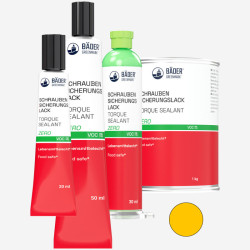
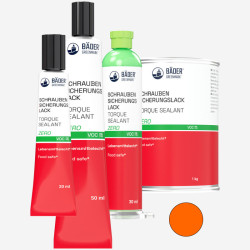
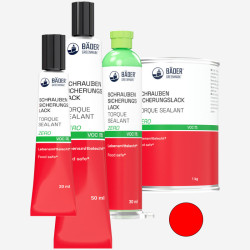
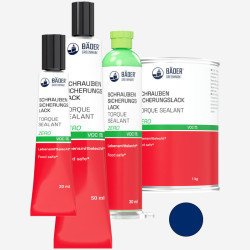
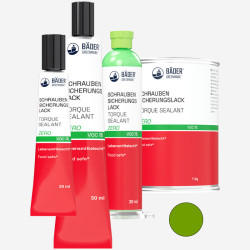
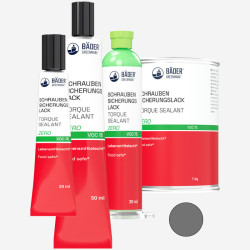
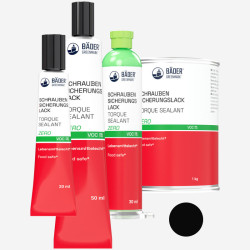
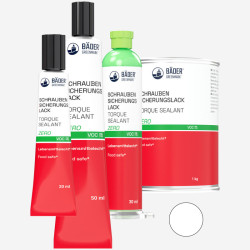
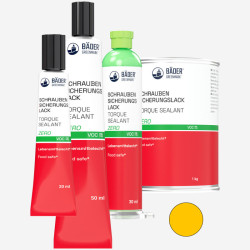
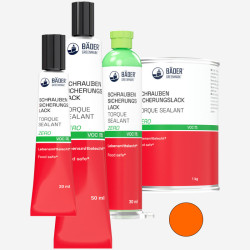
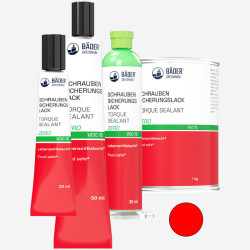
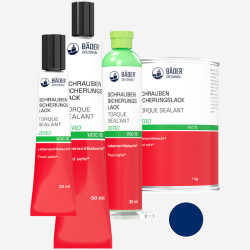


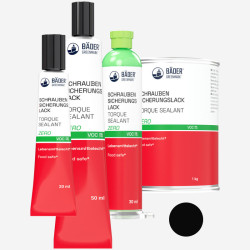
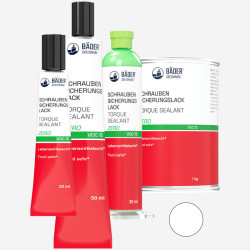
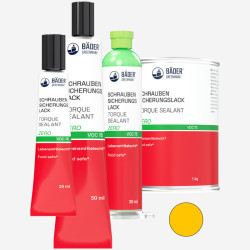
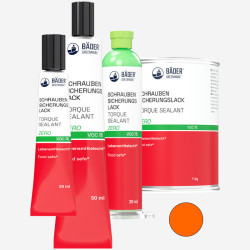
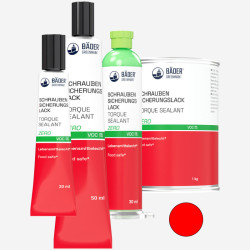

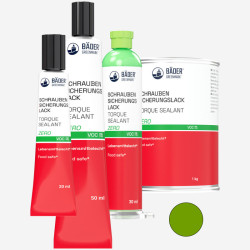
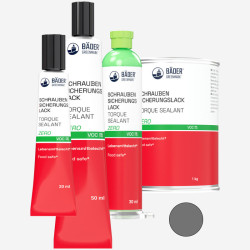
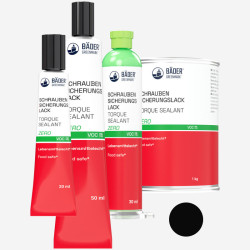
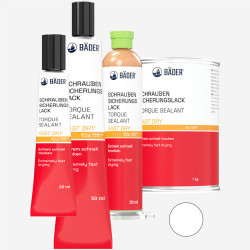
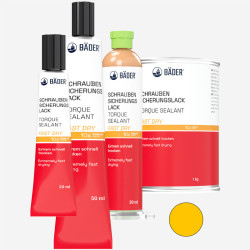
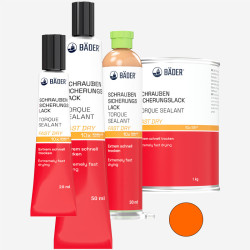
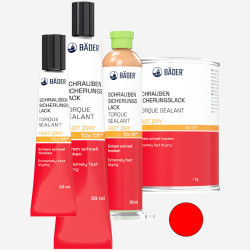
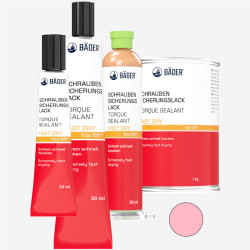
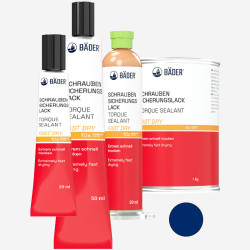
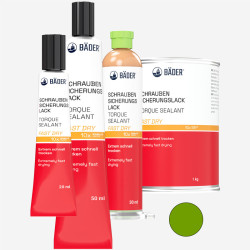
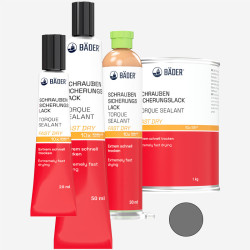
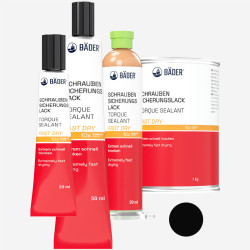
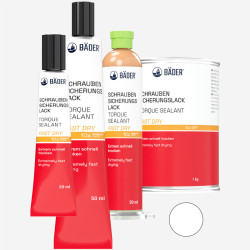
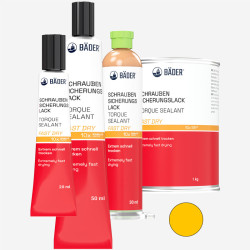
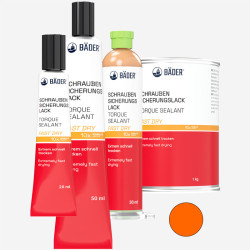
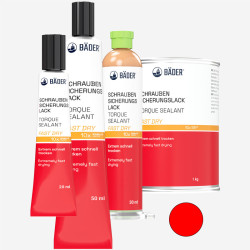
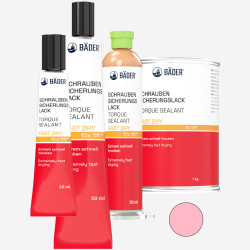
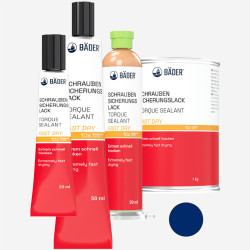
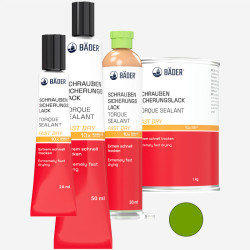
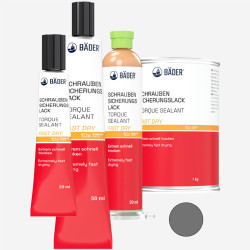
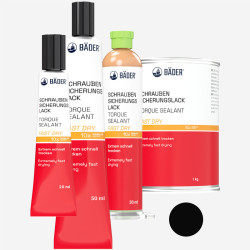
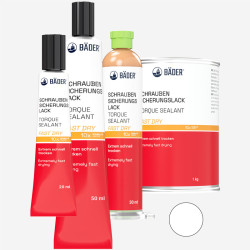
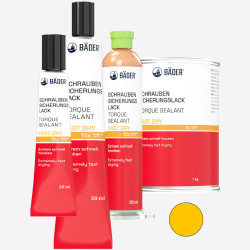
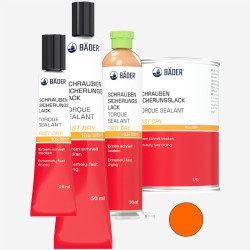
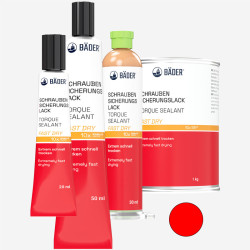
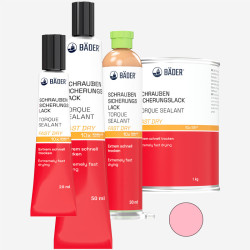
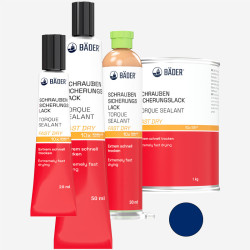
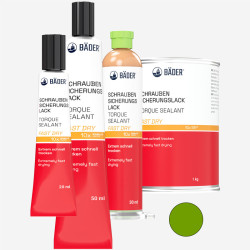
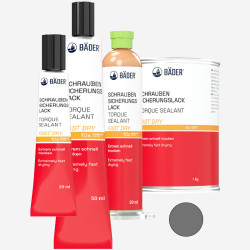
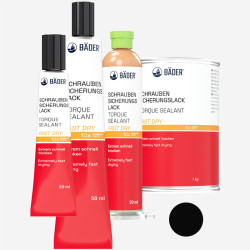
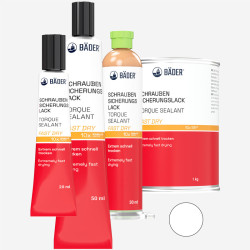
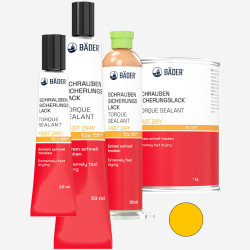
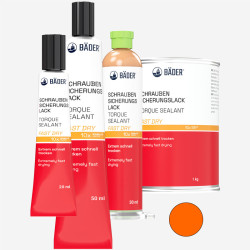
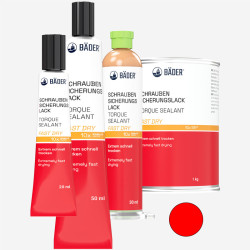
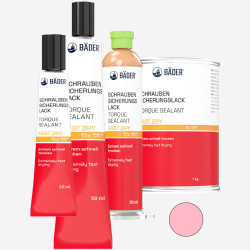
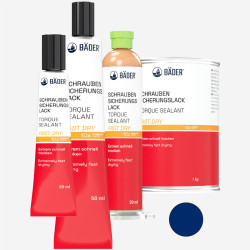
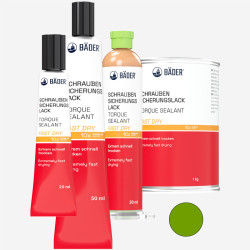
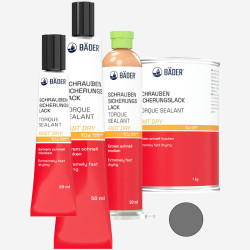
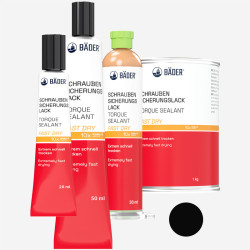
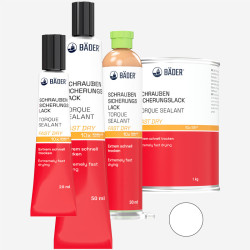
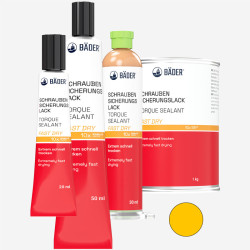
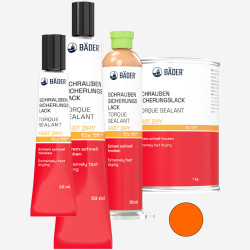
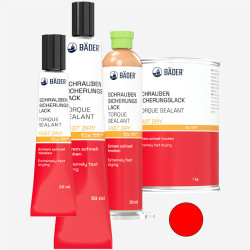
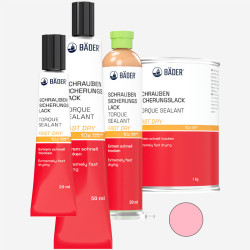

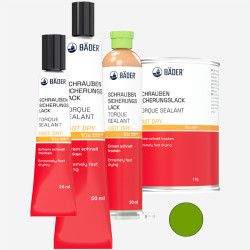
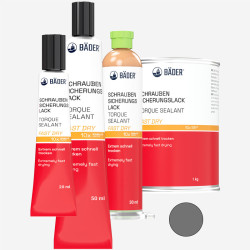
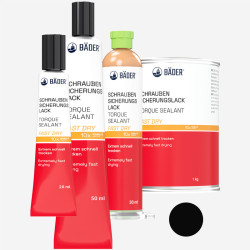
Leave a comment